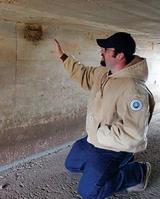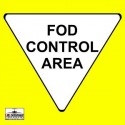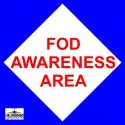 Aaron Betts is a wildlife biologist with the U.S. Department of Agriculture, assigned to oversee the Bird/Wildlife Aircraft Strike Hazard program at Vance Air Force Base and at Kegelman Air Force Auxiliary Field.
Aaron Betts is a wildlife biologist with the U.S. Department of Agriculture, assigned to oversee the Bird/Wildlife Aircraft Strike Hazard program at Vance Air Force Base and at Kegelman Air Force Auxiliary Field.
He is part of a growing number of wildlife biologists assigned to Air Force bases, where their job is to keep birds, deer, coyotes, skunks and other animals away from the airfields where they could potentially collide with multi-million dollar aircraft.
The effort, better known by the ironic but appropriate acronym, BASH, is designed to keep birds and other wildlife from impacting flying operations at Vance.
Describing Betts’ job is easy, he said, doing it, not so much.
“I mitigate conflict between wildlife and the air operations here at Vance,” he said. It is a daily effort at Vance, and he travels to Kegelman twice a week.
When he first came to Vance to take over the BASH program in 2007, Betts admitted he didn’t know what to expect.



